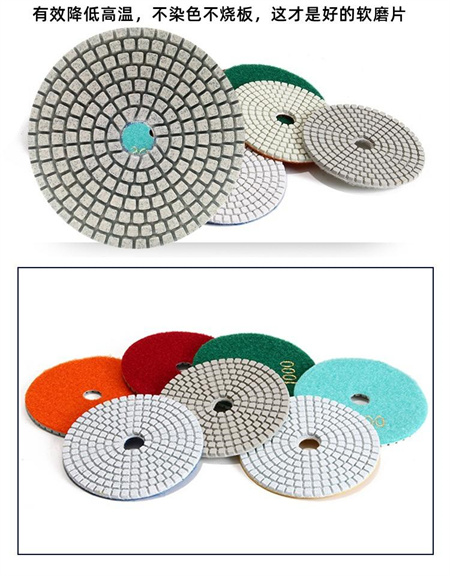Supply Chain Tips for Importing Diamond Polishing Tools
When importing diamond polishing tools, it’s crucial to understand that the process involves more than simply placing an order and waiting for delivery. Effective supply chain management is key to ensuring the timely arrival, quality, and cost-effectiveness of your products. From selecting reliable suppliers to ensuring smooth logistics, here are some essential tips to optimize your supply chain when importing these specialized tools.
1. Select the Right Supplier
The first step to a successful import journey is choosing the right supplier. Not all manufacturers of diamond polishing tools are created equal, so it’s essential to do thorough research. Look for suppliers with a solid track record in producing high-quality tools, as the diamond polishing industry requires precision and durability in its products. A reputable supplier will offer certification for the quality of their tools, ensuring that you receive products that meet international standards.
Moreover, don’t hesitate to ask for references or reviews from other customers. Suppliers who are transparent and willing to share this information typically show confidence in their offerings. Establishing a solid communication channel early in the process will also set the tone for smoother transactions down the line.
2. Understand Your Specific Needs

It’s also important to account for the quantities you need and anticipate future demand. If you need to scale up your operation, it’s better to discuss bulk pricing and long-term contracts with your supplier in advance. A good supplier will offer flexibility to meet your production needs, whether you require one-time purchases or ongoing shipments.
3. Plan Your Logistics Carefully
When dealing with high-value, delicate goods like diamond polishing tools, efficient logistics are essential. Shipping, handling, and customs clearance should all be factored into your supply chain planning. First, work closely with your supplier to determine the best shipping method for your goods, whether it’s air freight for speed or sea freight for larger volumes. Each method comes with its own set of costs and timeframes, so consider what makes the most sense for your business.
In addition, familiarize yourself with customs regulations in both your home country and the country of origin. Importing diamond polishing tools may involve specific regulations, tariffs, or duties that could affect the overall cost of your purchase. Partnering with a trusted freight forwarder can help streamline this process, as they can provide expertise in navigating customs requirements and help avoid delays or extra charges.
4. Ensure Quality Control
Once your tools are in transit, it’s essential to ensure they meet the expected standards. While you can rely on your supplier’s reputation for quality, conducting your own quality control checks upon arrival is a must. This process can range from simple visual inspections to more in-depth technical evaluations, depending on the complexity and precision of the tools you’re importing.
If you’re ordering a large batch, consider working with a third-party inspection company based in the supplier’s country. These services can help verify that your tools are manufactured according to the agreed specifications before they are shipped. This added layer of assurance can prevent costly returns or replacements down the road.
5. Build Strong Relationships with Your Supplier and Partners
Supply chain efficiency thrives on strong relationships. Maintaining open lines of communication with your supplier, freight forwarder, and any other partners involved in the process ensures that everyone is on the same page. A supplier that understands your business needs is more likely to prioritize your orders, respond quickly to issues, and offer solutions in times of crisis.
It’s also worth noting that building a long-term partnership can lead to better pricing, priority in product availability, and even exclusive deals that would not be accessible with one-off transactions. Over time, this can make a huge difference to your bottom line and provide stability in the supply chain.
6. Prepare for Delays and Disruptions
The global supply chain is often subject to disruptions, whether due to weather events, political instability, or shifts in demand. While you can’t predict every hiccup, preparing for potential delays can help you minimize their impact. Establish a buffer in your inventory planning to account for unforeseen disruptions, and regularly communicate with your suppliers and logistics partners to stay informed on any potential delays.
Moreover, consider diversifying your sources of supply if possible. Having multiple suppliers can help reduce risks if one provider faces issues with production or shipment. This approach allows you to mitigate the risk of relying on a single source and ensures that your operations continue running smoothly.
7. Stay Updated on Market Trends
The diamond polishing tools industry, like any other, is subject to changes in technology, material availability, and market demands. Staying informed about new product innovations, pricing trends, and regulatory changes can help you remain competitive. Attend industry events, subscribe to trade publications, and build a network of professionals in your field to keep up with the latest developments.
In addition, staying informed can also help you anticipate shifts in customer demand, allowing you to adjust your orders or stock levels accordingly. This proactive approach to market trends can give you an edge in meeting the needs of your customers while optimizing your supply chain.
Conclusion
Importing diamond polishing tools may seem like a straightforward task, but as with any specialized product, it requires attention to detail and proactive management of the supply chain. By selecting reliable suppliers, understanding your needs, planning logistics carefully, and staying informed about industry trends, you can ensure that your supply chain runs smoothly and that your business remains competitive. With the right approach, importing high-quality diamond polishing tools can become a seamless part of your operations, helping you to meet customer demands and grow your business.